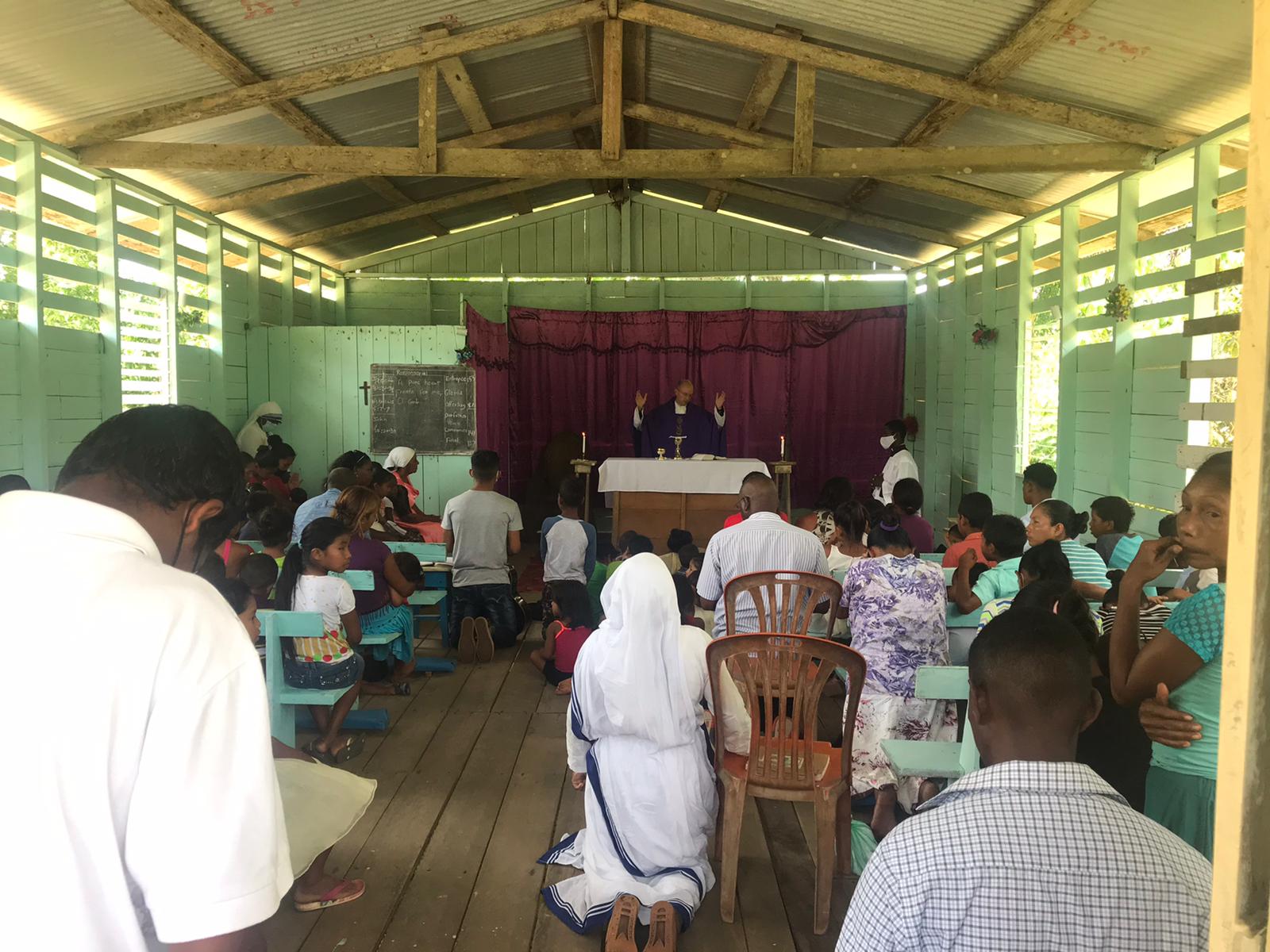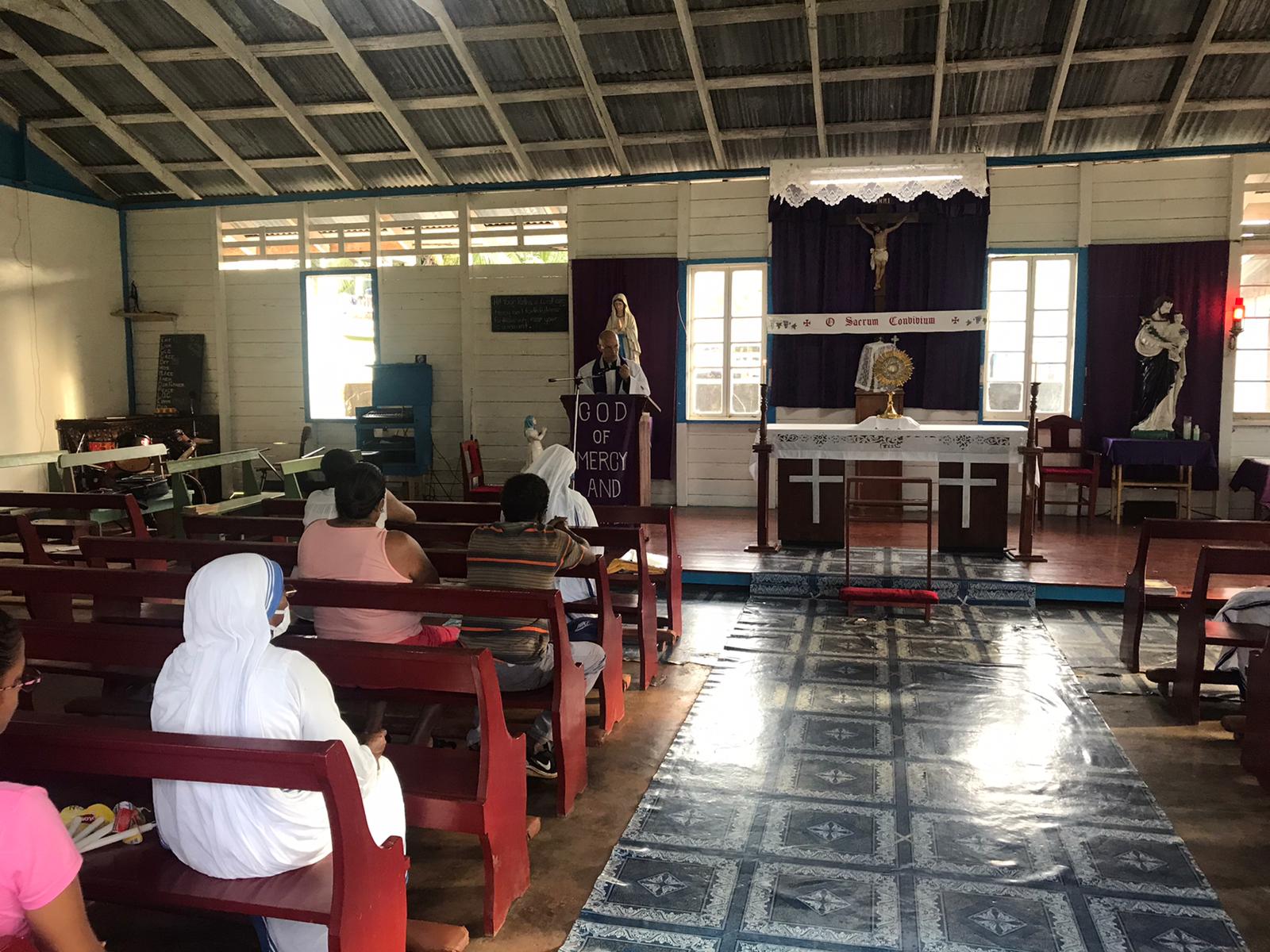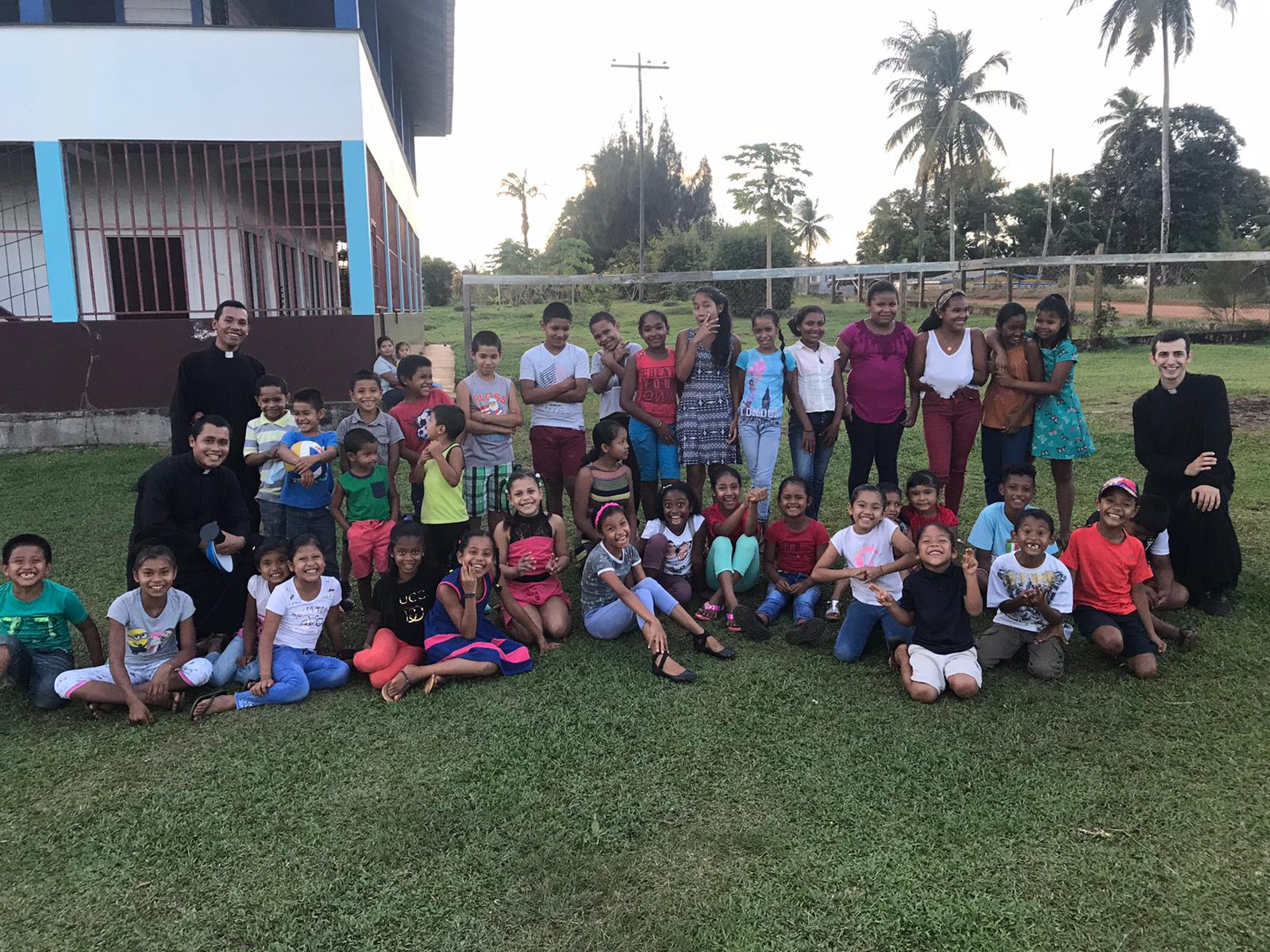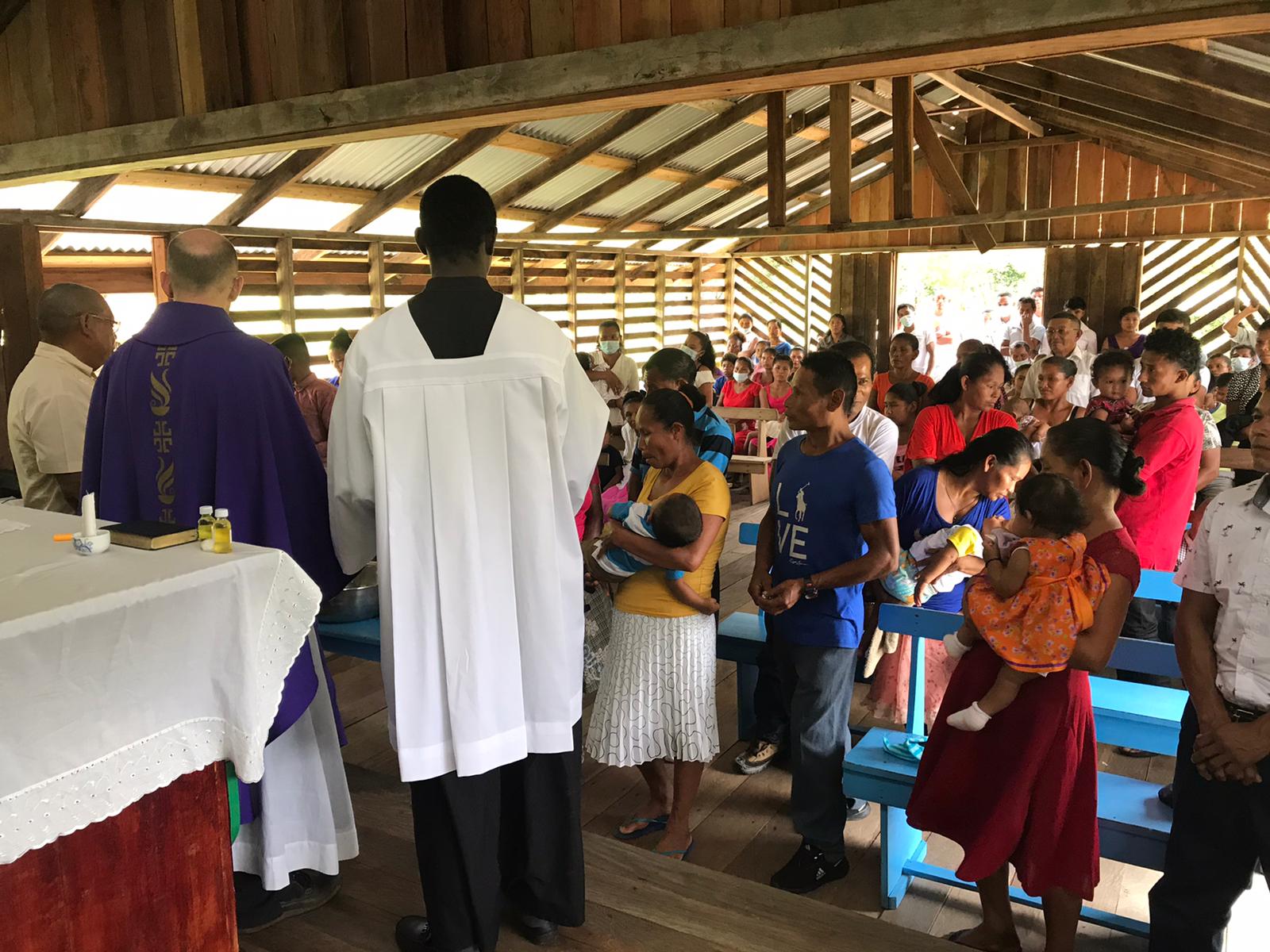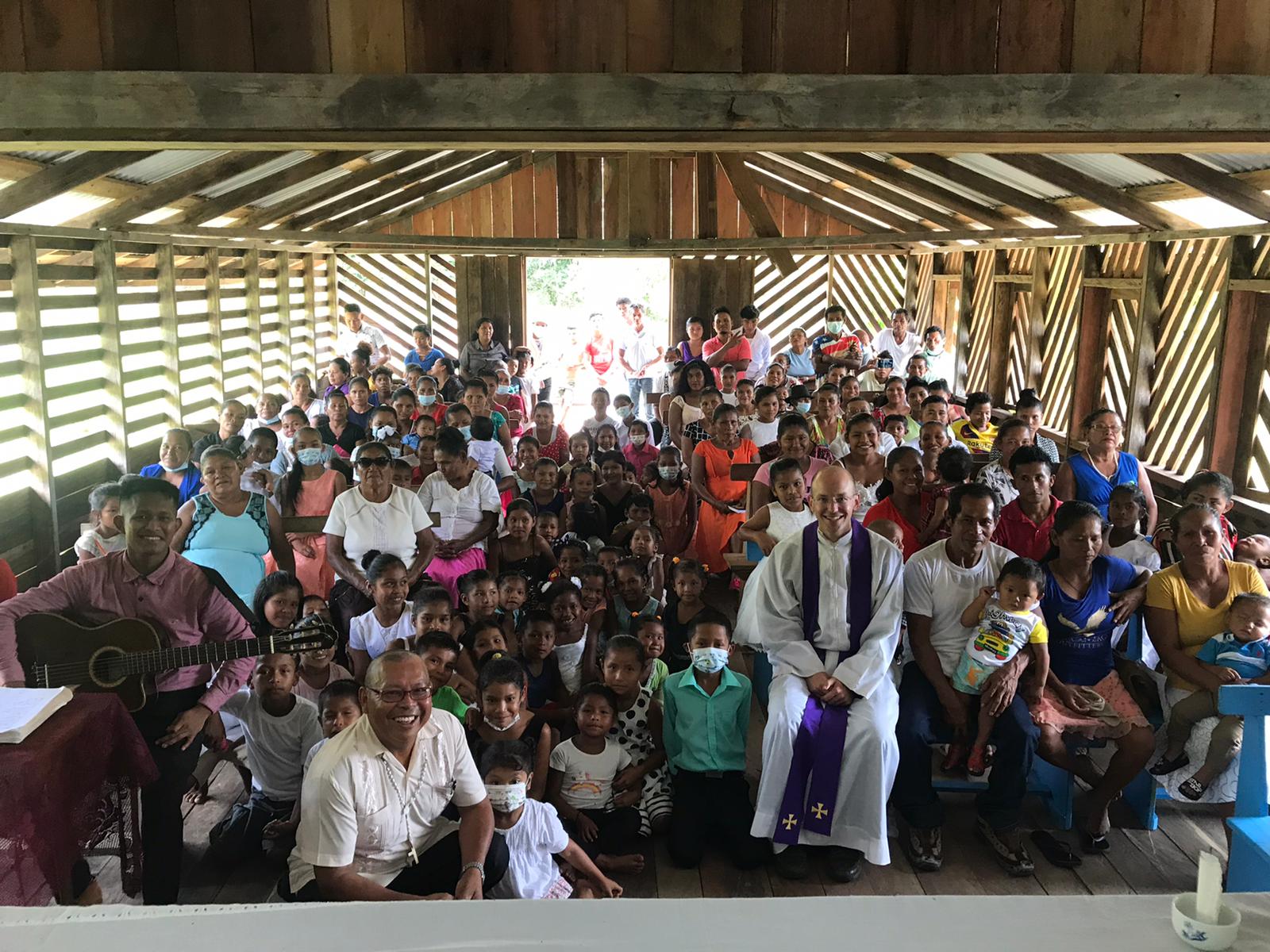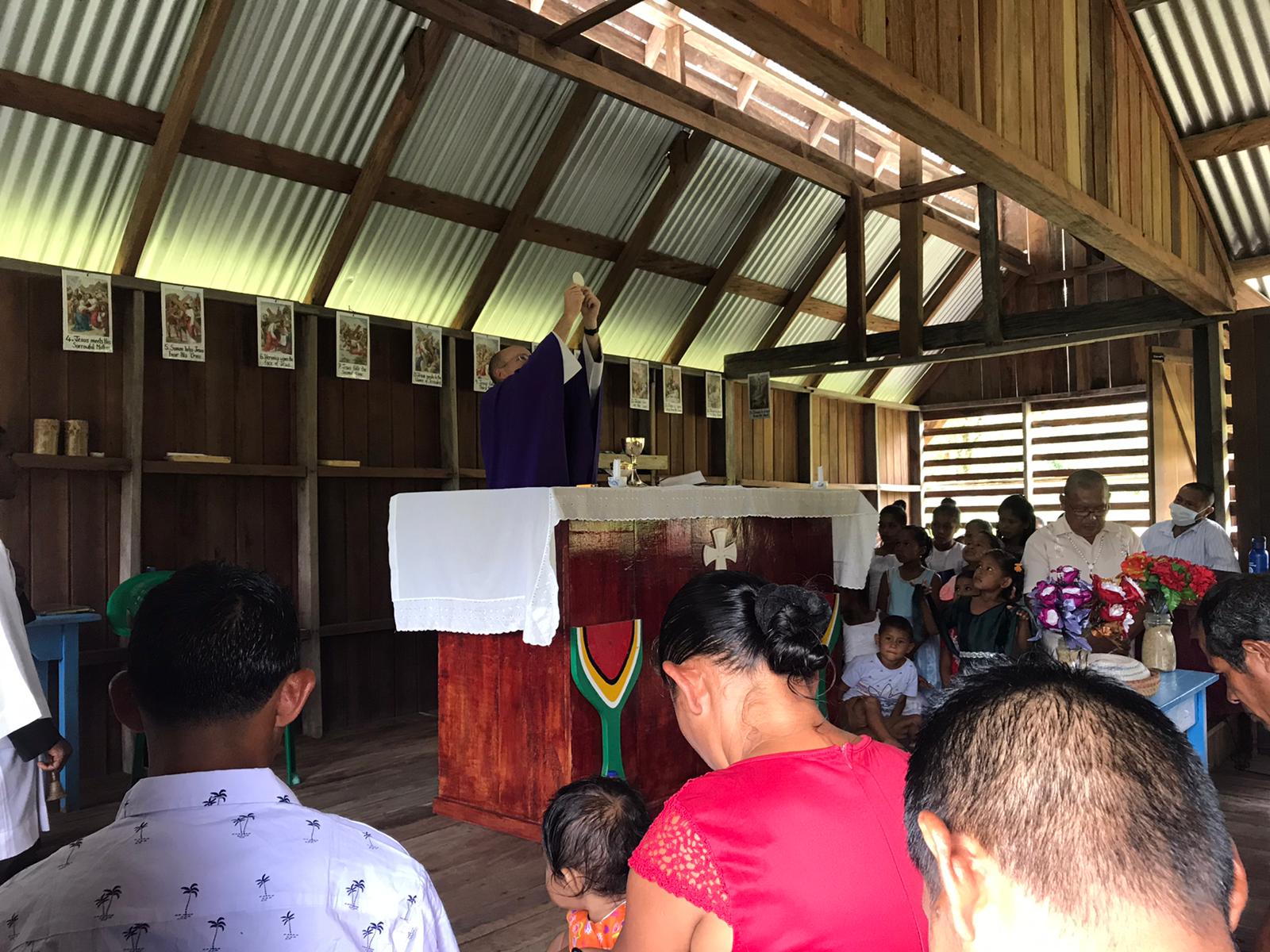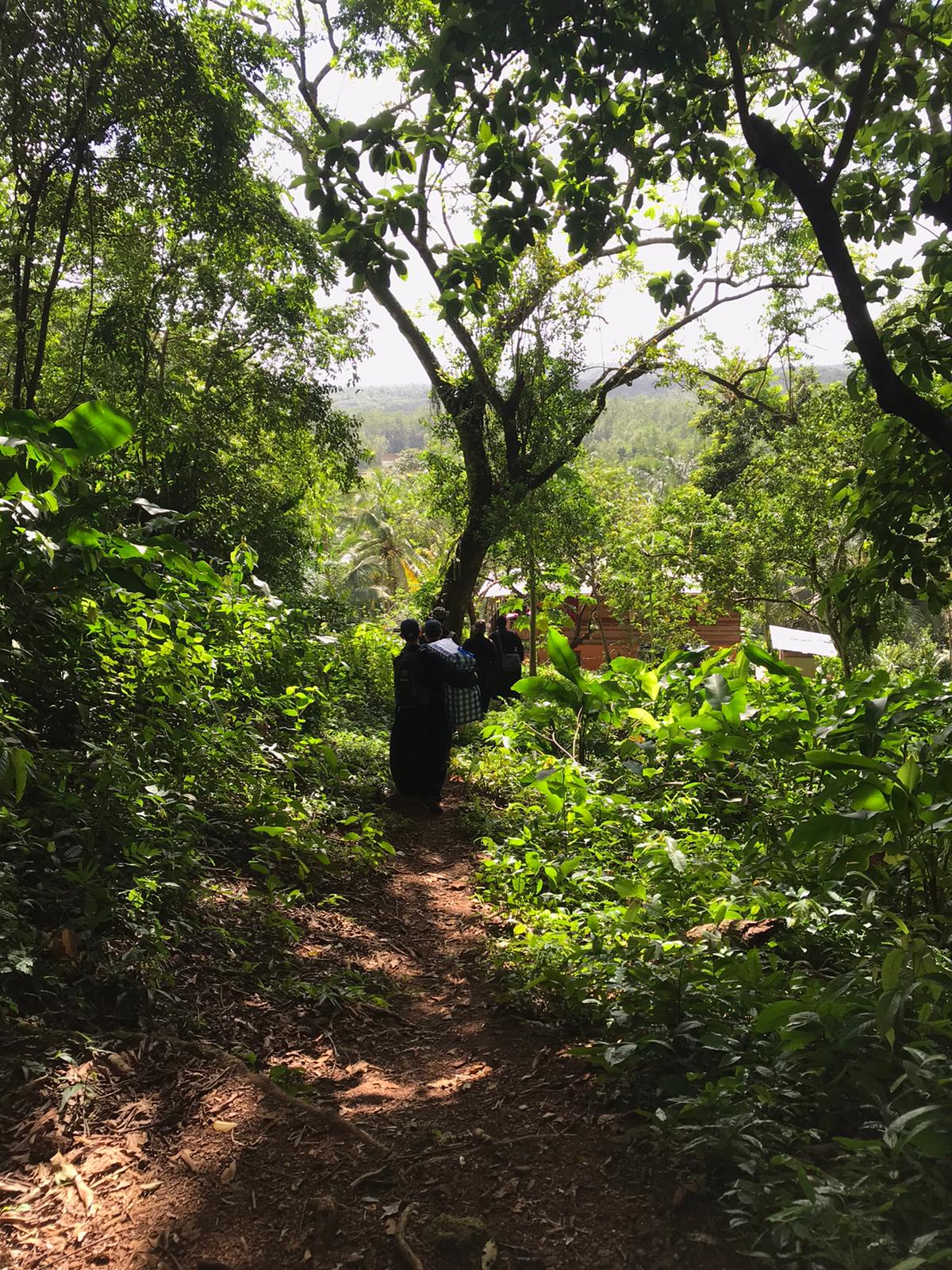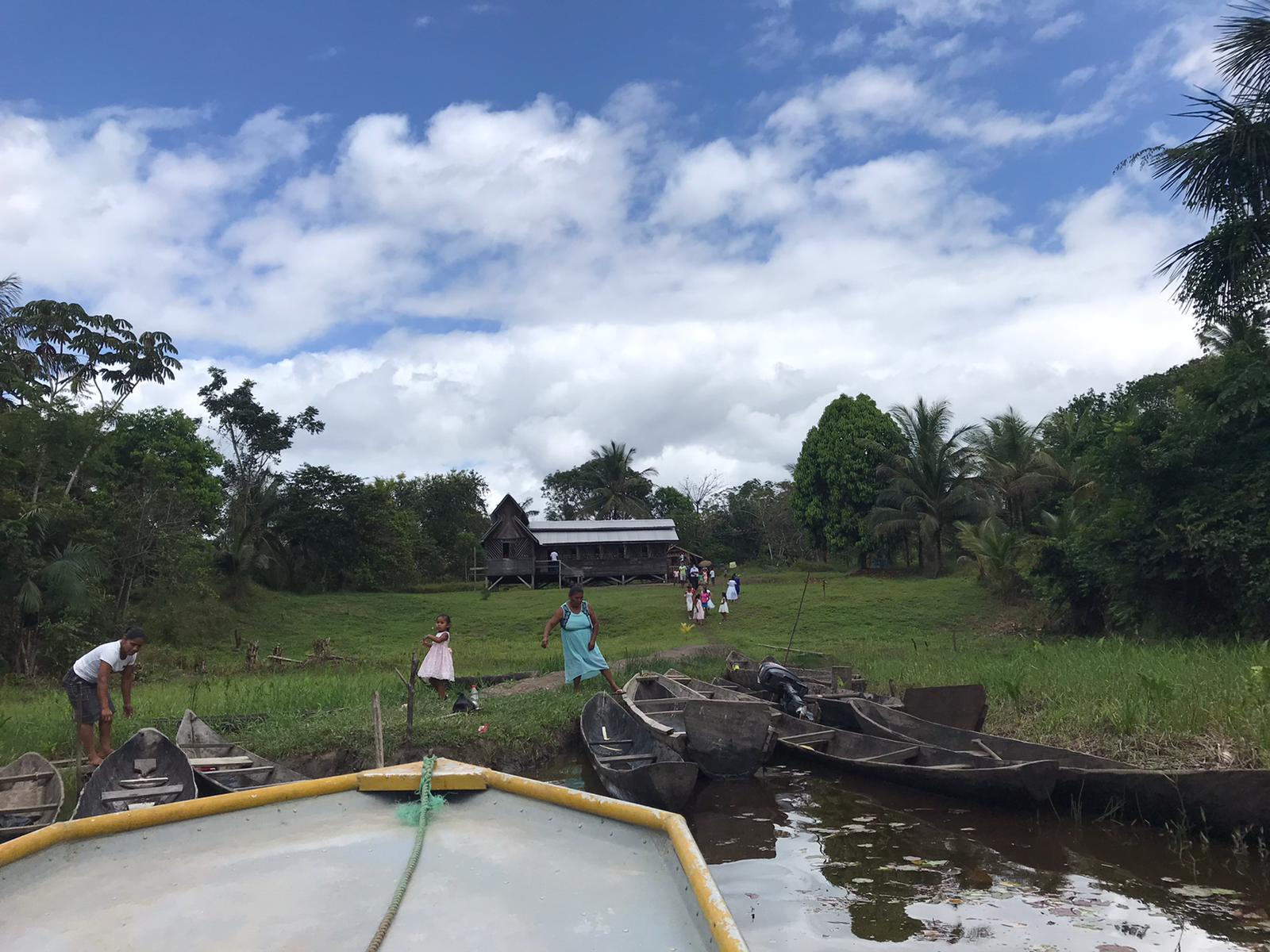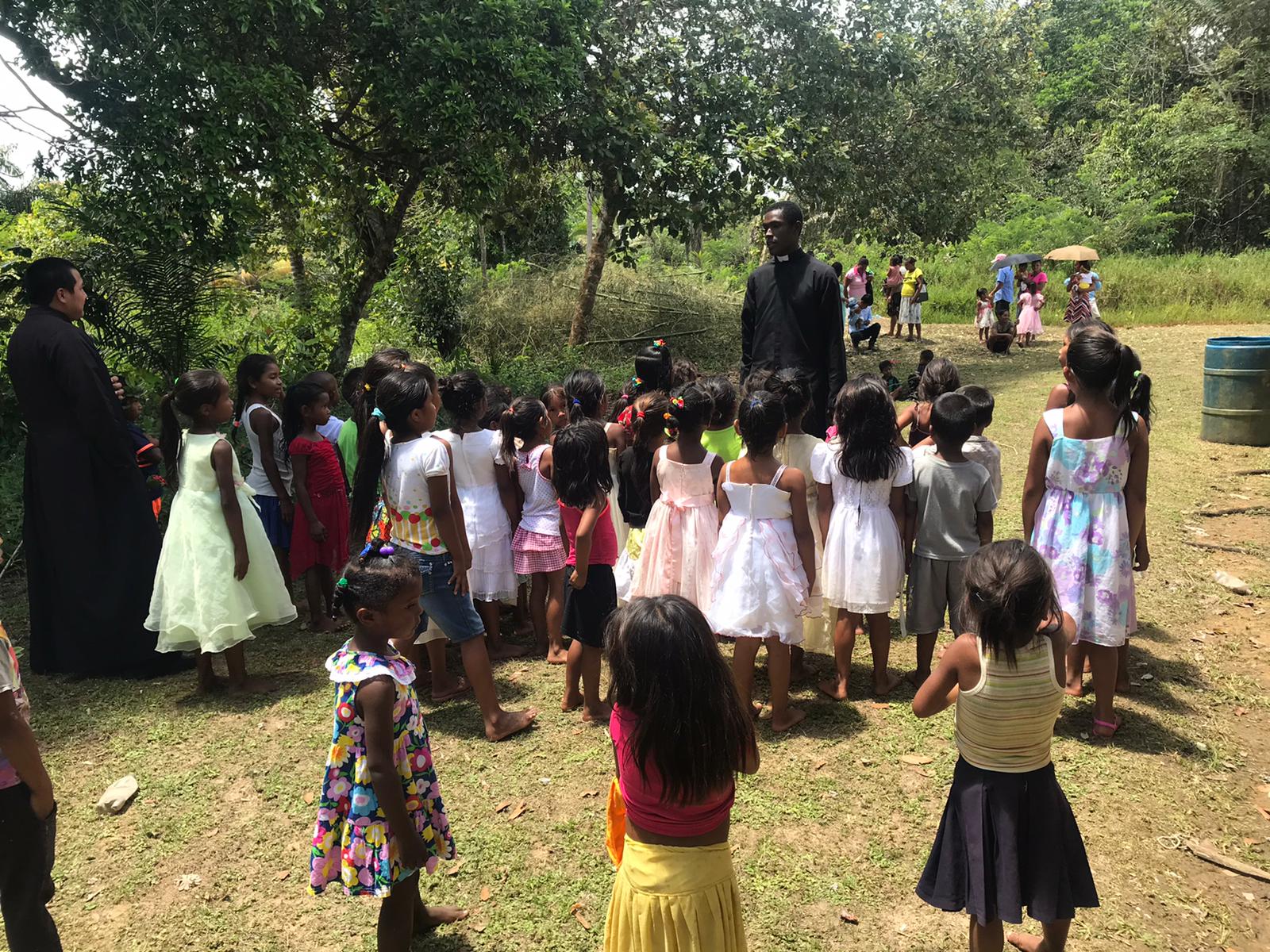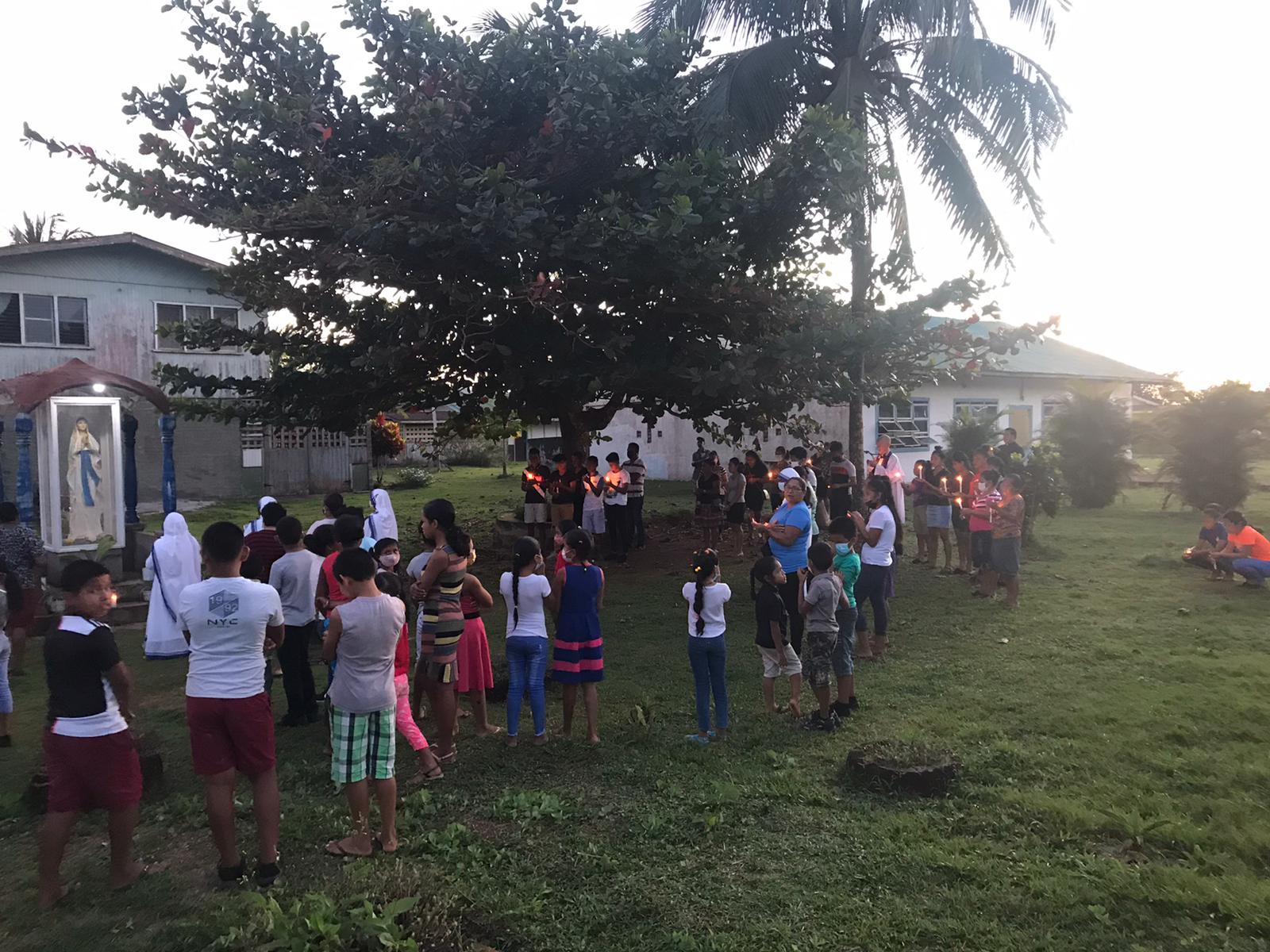More “Firsts” in the Mission
March 21st, 2021
Another Sunday has come and gone here in Hosororo. As we do every Sunday in the Religious Family it is a time to give thanks. I especially give thanks to God for the many “firsts” we were able to bring to fulfillment over the past two weeks.
Two weeks ago, we were able to organize our first Lenten Mission and Oratory. Despite its short duration (only four days) the Lenten Mission proved to be worth the effort. Both the lay community and the Missionaries of Charity took advantage of the daily Holy Hour, mission sermon and the Sacrament of Confession. At the same time that the Lenten Mission was taking place, the seminarians were able to organize a Children’s Mission. Each day the children took part in a “Good Afternoon” talk, games and competitions, and choir practice. The earliest fruit of the apostolate with the children was the formation of a children’s choir which is now responsible—under the seminarians’ direction—with singing on every First Sunday of the month. Both the Lenten and Children’s Mission ended each day with the praying of the Rosary in the Marian Garden outside the Church.
On the Saturday after the Mission, the seminarians were also able to organize their first Oratory on Hosororo Hill. The children were so pleased with the Oratory, that every day afterwards for an entire week they came asking to play.
The list of “firsts” grew longer after this weekend’s pastoral visits to Yarakita, Koberimo, and Hobodeia. Our new visits began this past Saturday with an hour-long drive to Yarakita. There we found a large Catholic community—mostly of Amerindian descent—anxious to meet us. The children especially came out in large numbers. After hearing Confessions and celebrating Mass, I asked the seminarians organized some games for the kids while I met with several parents who wanted to baptize their children. While I met with the parents, other adults were entertained watching the seminarians and children play. In the end, I do not know who enjoyed the games more, the children playing or the adults watching.
The Missionaries of Charity joined us for the visit and thankful to their generosity we were able to distribute “biscuits” (cookies) and “sweeties” (candy) to all of the children and the adults. After saying goodbye and promising to return for Easter Week, we made our way back to the parish.
After a quick lunch, I continued the work for the day and made my way down the Hill to visit Koberimo. When I arrived at the boat landing, I met one of the young men from Hosororo who wanted to come along for the visit. After waiting for a little while, we realized that waiting for the boat to come was going to take too long, so we decided to walk. There’s no official road that goes to Koberimo. If you do not take a boat who have to walk along the trench. I was told that if the trench mud was dry we could make it without any difficulty, but if it was still soft…well things could get interesting. Providentially for us that day the mud was mostly dry. After about a 20-minute walk we made it to the little village and their little Catholic chapel. It was by far the smallest chapel I have visited yet. The turnout for Mass was not too great. Only three adults and eight children came. Regardless of how many came, the important thing was that Mass was said in the community and those who took advantage of it were given the hope that their community was not a forgotten one.
On Sunday our pastoral work brought us back to the river. After the early morning Mass at Hosororo, the seminarians and I walked down to the boat house to begin our journey to Hobodeia. Hobodeia Village is nestled along the Aruka River about an hour from Hosororo Hill. We arrived early enough so that I would be able to hear Confessions before Mass. Much to our surprise the Church was already full when we got there. They gave us an official greeting complete with a welcoming song. After the welcome and Confessions, Mass began around noon.
I was graced with the opportunity to baptize 14 more children during the Mass. Due to the constant hum of the generator used to provide electricity for the church building, my voice was give out by the time Mass was over. Trying to speak over the generator’s noise proved difficult, but the sacrifice was worth it. At the conclusion of Mass six couples also presented themselves to me asking for assistance in helping them get married in the Church. For well over a year they had been waiting for a priest to talk to about the possibility. Knowing that my future here in the mission was uncertain, and knowing that I did not have the proper marriage minister’s license to be able to officiate the marriage. I told them that I would be back to visit on Easter Week and that I expected all of them to come to the Mass so that we could at least begin some formal instruction.
And this brings me to the deeper reason why I wanted to write this Chronicle. God does not expect us to do everything in the mission, nor does He expect us to see the fulfillment of our works; He simply asks us to work. Sometimes we hesitate to do things because the conditions are not ideal.
Now there’s a big difference between having an ideal and having ideal conditions. The ideal is what motivates our life and our work. It gives a foundation to who we are, why we live and why we act the way we do. Our great ideal as priests, religious and missionaries is Christ: the Eternal Priest, the Self-less Victim, the Chaste, Poor and Obedient One.
It’s something entirely different, however, to work under “ideal situations”, that is, those conditions we assume to be necessary from to accomplish any task. Christ, I don’t think, ever worked under “ideal conditions” from a human point of view. Galilean fishermen were His future Apostles. No one in his hometown, besides His mother, supported Him. His public ministry lasted only three years and ended tragically. The list of examples could go on.
If Christ did not work under “ideal conditions”, then His missionaries should not expect to either. Sometimes in the mission you will not have the resources you came accustomed to having and using growing up or even during your time of formation. You will not necessarily work in a well-founded mission, wherein the spirit and apostolic style of our Religious Family has firmly taken root. And very often you will have neither enough time nor manpower to meet every need. So what do you do? Take the easy road and say, “Well, the conditions are not ideal, so we will have to wait.” Or do you bite into reality and do what you can?
Sinking our teeth into reality is not easy. It takes experience in the mission field to truly acquire it, but more than experience, it also takes the willingness to die to self. As I see it, sometimes we hold back from doing what we can more out of hardheadedness than anything else. May the Good Lord free us all from being attached to our ways, so that we may be in truth “unconditionally for God” in our missionary labors.
Long live Christ!
Long live the priesthood!
Long live the missions!
Fr. Christopher Etheridge, IVE
Hosororo, Guyana

